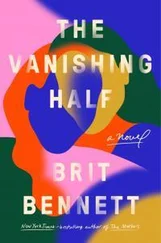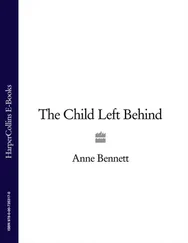CHAPTER 1
A Grand Day Out
There were no tears, no long, lingering, last looks back down the tunnel. There were no laps of honour, not even a trophy. Neither were there any emotional farewell speeches in the dressing room. I paused for a moment as I walked towards the dressing-room door, but that was just to catch my breath. I was exhausted. But I was also the happiest and most relieved I had ever felt in a Welsh jersey. We had beaten France and I had led my country to a Grand Slam.
I’d run off the field. Not because it was my last game for Wales, but because I always ran off the field when I was captain to make sure I could shake hands with the opposition skipper. The noise was deafening. There were supporters running everywhere with wild faces, trying to grab players as they made their way to the dressing rooms. I found Jean-Pierre Bastiat, shook his hand, and he congratulated us before I rushed towards the tunnel. We had done it, I thought. I was tired, my body ached and my head was pounding. But I felt no real pain – just pleasure and huge, huge relief.
I walked into our dressing room and the players I had been alongside for the best part of a decade followed after me – JPR Williams, Gareth Edwards, JJ Williams, Ray Gravell, Bobby Windsor, Derek Quinnell and Terry Cobner. They all looked as I felt, utterly exhausted but content. I walked over to Gareth and told him quietly, ‘That’s it. That’s my last game. It’s been a privilege and a pleasure to play with you, Gar.’ He smiled. ‘Bloody hell,’ he said. ‘You’re getting out, too. That’s my lot as well.’ Typical Edwards, he always produced the unexpected whenever anyone else threatened to steal the headlines. Both of us had spent the week reaching the same conclusion. It was time to go. But we thought we were alone in those decisions; neither of us suspected the other had resolved to do the same.
I had come to my decision after our previous game, in Dublin where we had beaten Ireland at Lansdowne Road to win the Triple Crown. It was the triple Triple. Three times in a row we had claimed the Triple Crown, but this was by far the hardest, the most demanding.
I had started the 1977–78 season too soon, but that was all the fault of Prince Charles. In the summer of 1977 I had captained the Lions to New Zealand and returned home feeling physically and emotionally shattered. I needed a break and the tradition then was for Lions to sit out the first month of a season after a tour. But Prince Charles was coming to Llanelli for a commemorative match and I had been persuaded to play. It was a mistake as it meant I began the season without a real break and by the time of the 1978 Five Nations I was feeling the strain. We had beaten England and Scotland but deep in my heart I could hear a voice telling me it might be time to get out. The commitments of an international rugby player seemed to be increasing every year. But I was playing quite well, so I was still uncertain.
Ireland helped make up my mind. The build-up had been incredible. The triple Triple Crown had never been achieved before but to read the papers beforehand you would have thought the result was a foregone conclusion. This would be the crowning glory for the team of Gareth, Gerald and JPR, they said, without much thought given to Ireland. But I knew where Ireland would want to stick our triple Triple Crown, especially on their own patch.
My worries were not misplaced. Ireland thundered into us for the whole game. There was a lot of blood spilt and it was one of the dirtiest Five Nations matches I ever played in. JPR late-tackled Mike Gibson and maybe should have been sent off. Either way, the crowd went ballistic but we somehow managed to keep our heads and win, 20–16, after JJ scored a late try in the corner. But what struck me more deeply than anything was not our achievement but the way it was received by the men who had delivered it. There was no elation or hysteria in the dressing room; the players were almost out on their feet. I looked around the room at the faces. Gareth looked worn out, but Gerald was ashen. I think he had been stunned by the physical ferocity of the game, the number of boots going in on the ground, especially from fellow Lions. That was one of the unwritten laws in those days. You didn’t stamp on another Lion. But that afternoon Gerald had witnessed a nasty physical edge to the game which he wasn’t familiar with, and which he didn’t appreciate. As a grammar-school boy and Cambridge graduate, Gerald had firm ideas on how rugby should be played. After coming through this match he looked ruffled, bemused and very weary. It hadn’t been pretty and if it had not been for the strength of body and character of our forwards – especially Bobby Windsor and Terry Cobner – then we would not have withstood the Irish ferocity and would have lost. Gerald was one of a number of Lions who took a good booting on the floor.
Later, at the Shelbourne Hotel in the centre of Dublin, we were greeted by hundreds of Wales supporters as we got off our team bus. They were cheering and singing but amid all the noise and congratulations I was stopped by one fan who looked me straight in the eye and said, ‘Great, Phil. Well done. But just you make sure you beat those French bastards in two weeks’ time.’ The prospect of another brutal battle after a long week of training seemed to wash over me in a wave of fatigue. I had just spent about half an hour enjoying winning the Triple Crown. Now I would spend two weeks worrying about France and the Grand Slam. That was the way of things as a Welsh international in those days. The success was intoxicating and made you feel during matches that some kind of force was sweeping you off your feet and allowing you to perform to the most incredible standards. But in between games the expectations of the whole country were sometimes hard to bear. They were there when you played or trained with your club, when you went shopping or down the pub. It felt like a heavy burden, sometimes too heavy. After each victory we would celebrate like any other rugby team, but as soon as some supporter mentioned the next match, and how important it was that we beat the English/French/Scots/Irish, I would feel a tightening in my stomach.
On the Sunday before the match against France we had our normal training session at Port Talbot. It meant another weekend away from my wife Pat and our two-year-old son Steven. For the first time since I got into the squad in 1969, I resented having to go and train with Wales. I hated every mile of that M4 journey between Llanelli and Port Talbot. To make matters worse, the training session was a disaster. We were awful, so bad that our coach, John Dawes, abandoned things and told us all to go home and have a rest.
The week dragged and I felt jaded. Whatever spark I had that kept me going felt as though it was starting to burn itself out. I told Pat I’d had enough and that the match against France would be my last international. I was 29 years old. As a keen boxing fan I’d seen enough fighters go on for one fight too many and I didn’t want to end up like that.
But this was a match for the Grand Slam. In the days before World Cups, the Slam was the ultimate and I didn’t want anything to distract us from our goal. So I told no one else apart from Pat about by retirement plans and I took my secret with me on to the field at the Arms Park. There was also one other feeling that kept nagging away. Maybe, just maybe, this team had reached its peak. We had gone through most of the seventies together and now a number of players were coming towards the tail end of their careers. If the team was going to be dismantled then I felt we, the players, should be the ones who removed the first bricks.
I was concerned that my own emotions in the build-up to the match might get in the way, but as it turned out I had more then enough to worry about. We lost Gerald Davies through injury and Gareth Evans of Newport came in to take his place. France were a very impressive side. They had Bastiat, Jean-Pierre Rives, Robert Paparemborde, Jean-Claude Skrela and a fine young scrum-half in his first season called Jerome Gallion. My own feelings and emotions got buried under tactical considerations and the sense of expectancy that surrounded our bid for another Grand Slam.
Читать дальше












